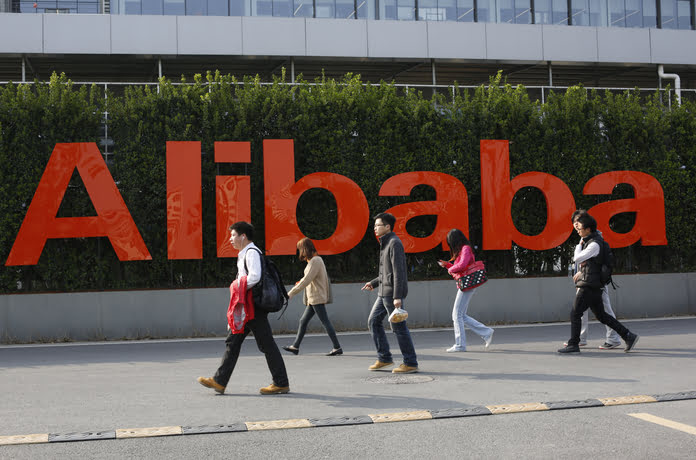Alibaba’s (NYSE:BABA) shares have fallen more than 50% in the previous year, and many investors are eager to buy. The basic reasoning is that the stock has already fallen far enough and will only continue to rise from here. While that was a powerful contrarian argument a few weeks ago, it is now riddled with flaws, guesswork, and exaggerated assumptions. In this piece, I’ll explain why investors should avoid the value trap that Alibaba is progressively becoming. Let’s take a closer look at everything.
Alibaba’s Valuation Misconception
To begin, Alibaba’s stock is trading at only 2.1 times its trailing twelve-month sales. This is surprisingly low, especially given that the stock used to trade for more than 24-times its sales in 2015. Given the stock’s substantial discount to its past levels, contrarian investors argue that it is attractively positioned and doesn’t have much downside potential from current levels.
At least 14 other internet retail stocks are expanding faster than Alibaba but trading at lower P/S multiples. This gap is accentuated when we consider that Alibaba’s US-listed shares provide ownership solely in a Cayman Islands-based shell corporation. In contrast, its other attractively priced US-based contemporaries provide ownership in actual firms. Because of this difference, like securities, Alibaba’s shares should theoretically be selling at a discount to their US-based counterparts. Still, they are instead trading at a little premium. This should prompt contrarian investors to reassess their position on the e-commerce behemoth.
The Growth Slowdown
Moving on, unlike the United States, the Chinese government has not raised interest rates in recent months. This implies that the Chinese economy will continue to grow quicker, and enterprises operating there should, in theory, thrive. In contrast, other world economies stagnate and enter a recession. This industry tailwind could increase Alibaba’s growth prospects, a silver lining in the overall contrarian story.
But there’s another issue here as well. In recent weeks, a number of macroeconomic challenges concerning China have emerged:
- Chinese homeowners are refusing to pay mortgage payments, which is likely to spark a banking crisis in China;
- China has escalated its military drills around Taiwan, and it’s anyone’s guess whether it’ll be another invasion; and
- A banking fraud in China resulted in customer accounts being frozen, fueling fears of a widespread credit crisis.
Consumer confidence in China has suffered due to these events, and consumer spending will likely suffer in Q3. This might lead to a more severe downturn for Alibaba and other similarly positioned Chinese e-commerce enterprises, erasing the benefits of the country’s low lending rates. This is progressively reflected in Wall Street expectations; see how analysts have gradually decreased their revenue estimates for the company with each passing week.
This deteriorating macroeconomic situation in China should prompt investors to reconsider their investment in Alibaba.
The Delisting Risk
Finally, contrarian investors are hopeful that Alibaba’s delisting fears are overstated and not a cause for concern. The risk, though, is very substantial. The SEC issued a new list roughly ten days ago, stating that Alibaba and 270 other Chinese companies will be delisted from US exchanges if they do not allow audit inspections.
Given how quickly diplomatic ties between the US and China have deteriorated over the last week, such progress appears increasingly unlikely. Earlier this year, Chinese regulators promised investors that they would cooperate with the SEC and comply with their audit criteria to avoid mass delisting Chinese companies from US exchanges. However, I have told investors that authorities have not made any progress, and the risk remains.
One could argue that because Alibaba is listed on Hong Kong exchanges, delisting in the US will have no effect. But it will happen. The likelihood of Alibaba’s shares being delisted in the United States will likely spark a huge selloff by institutional investors with mandates to exclusively invest in US stocks. Furthermore, because the financial cost of owning Hong Kong-listed equities is significantly higher for US residents, ordinary investors are likely also to sell their shares in large numbers.
Furthermore, Hong Kong-listed shares have not performed any better than US-listed shares. Both equities have steadily decreased over the last year. I expect the slump to continue in Hong Kong-listed shares in the future, given Alibaba’s worsening growth prospects and its generally stretched price.
Final Thoughts
There’s no doubting that Alibaba’s revenue has increased rapidly over the last decade. The company’s operations have grown over time, and its many revenue streams have all increased in size. This is a commendable accomplishment and an advantageous position.
Featured Image: Megapixl @Minipig5188

















